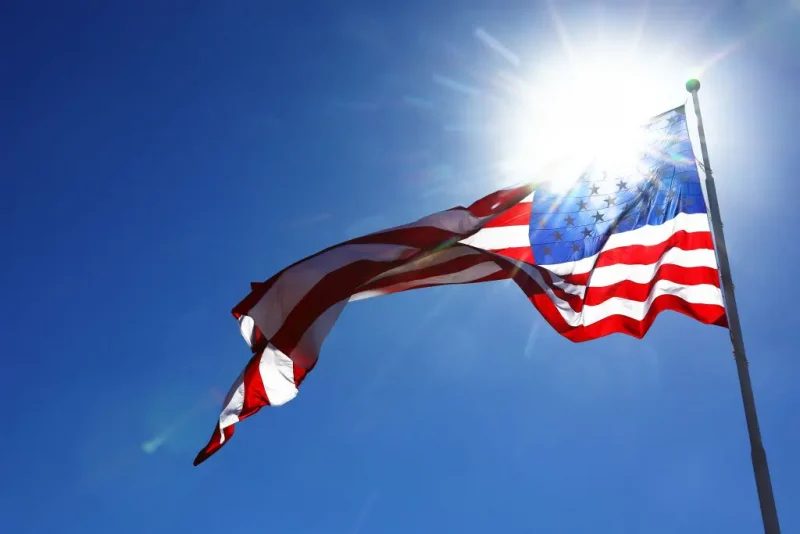
OAN Commentary by: Perry V. Kalajian
Wednesday, October 15, 2025
Let’s separate the facts from the fiction on Europe’s decline.
For centuries the countries of Europe used their military might, supported by their economic power, to conquer and colonize most of the world, but these same countries, exclusive of Russia, never really recovered from World War II. Since the end of the second World War, Europe has faltered militarily and economically, while Asia and the U.S. have grown. Europe has looked to the U.S for its security and used the generosity of the U.S. to rebuild and support its economy. Europe has responded to this U.S. benevolence by forming the European Union (“EU”), an entity designed to challenge the U.S. economically. Regardless, while EU members show their nationalistic zeal and bicker among themselves, Europe continues to decline.
I believe that the seeds of European decline were sown in the 19th century, when the communist thinking of Karl Marx and Friedrich Engels was introduced to a class-based European culture fertile for this philosophy. Communism eventually took root in Europe in the 20th century, especially after the destruction of most of the European continent during World War II and related despair of the population.
The governments of many European countries over the last 80 years like to think of themselves as being social democrats or, in some cases, the more extreme democratic socialists, but aside from voting privileges, these governments have adopted many of the characteristics of communism with the emphasis on a strong centralized government, high taxes, elevated welfare spending, government control of measures and services, the rise of unions, the decline of social classes, supporting harmful immigration to challenge class structure and encourage internal strife for the benefit of government leadership and control, and a lack of free speech.
This has resulted in a weakened and less relevant Europe on the world stage. The strong centralized European governments, which have instituted high taxes and excessive regulations, while controlling measures and services, have disincentivized hard work, risk taking, and entrepreneurial thinking, ultimately resulting in inhibited growth. The shackles fostered on corporations by unions have had a further negative impact on the ability of businesses to innovate and prosper. Government support of unions and other efforts, including the encouragement of immigration, have also resulted in excessive amounts of time and resources being spent on breaking down historical social classes and the associated internal turmoil. The lack of free speech limits criticism of governments thereby entrenching those in power.
Between 2005 and 2024, Europe’s share of world economic growth measured in current dollars has fallen from 33% to 23%. As of 2024, the EU accounted for just 14% of global output on a purchasing-power basis, which is a decline of more than 20% since 2000. Subsequent to 2009, European household wealth has increased by a third as much as that of Americans’.
Over the last five decades, the U.S. has built, from the ground up, 241 companies with a market capitalization of greater than $10 billion, while Europe has created only 14. Just four of the world’s top 50 technology companies are European. Recognizing its inability to compete in the technology sector, Europe has attempted to stifle innovative U.S. companies through measures such as the Digital Services Act and Digital Markets Act.
In the late 1990’s, the average EU worker produced 95% of what their American peers made per hour. Currently, the Europeans produce less than 80%. This reduction in hourly production is further exacerbated when consideration is given to the fact that European workers generally work considerably fewer hours per year than their U.S. and Asian counterparts.
The actions in Europe have resulted in Germany, Europe’s leading economy and the third largest economy in the world, being financially stagnant at best, while debt-laden Britain and France, the world’s sixth and seventh largest economies, respectively, are both showing signs of a possible Greece-style meltdown.
In contrast to Europe, the U.S., while adopting, to a limited extent, certain leftist endorsed elements of communism such as support of unions and illegal immigration, has so far largely avoided much of the communist actions undertaken by the Europeans. The U.S. generally does not suffer from (especially when compared to Europe) an all-encompassing central government, exorbitant taxes, government control of measures and services, a lack of free speech, excessive regulations or exorbitant welfare spending.
In the case of the leading Asian nations, most are not hindered by the communist restraints adopted by Europe. Even in China, which has a strong central government which controls measures and services, the leadership recognized years ago that a capitalist overlay needed to be applied to its form of communism for the country to grow economically. The capitalist actions in China led to the creation of significant companies like Huawei, BYD and others, all with allegiances to the Chinese government. This capitalist influence is now being rolled back to some extent by President Xi Jingping. While China has never been known as an innovative country, it will be interesting to see whether President Xi’s retreat from capitalist applications will impede China’s economic ascent.
The U.S. currently finds itself in a struggle for global leadership, economic and otherwise, with China. To be successful in this battle with China, it must resist those who call for the U.S. to follow the failed path of Europe. The U.S. must stick to its capitalist principles with an eye toward pro-growth initiatives.
In summation, we must consider the facts and not be fooled by the fiction.
And that’s my take.
(Views expressed by guest commentators may not reflect the views of OAN or its affiliates.)
Perry V. Kalajian is an attorney, consultant, analyst, and national television personality.
What do YOU think? Click here to jump to the comments!
Sponsored Content Below

